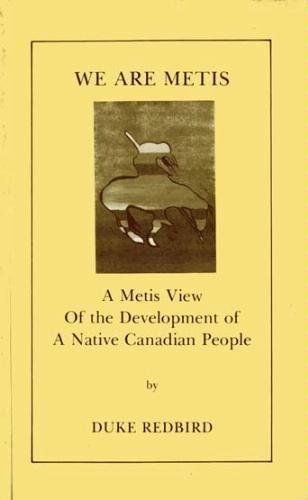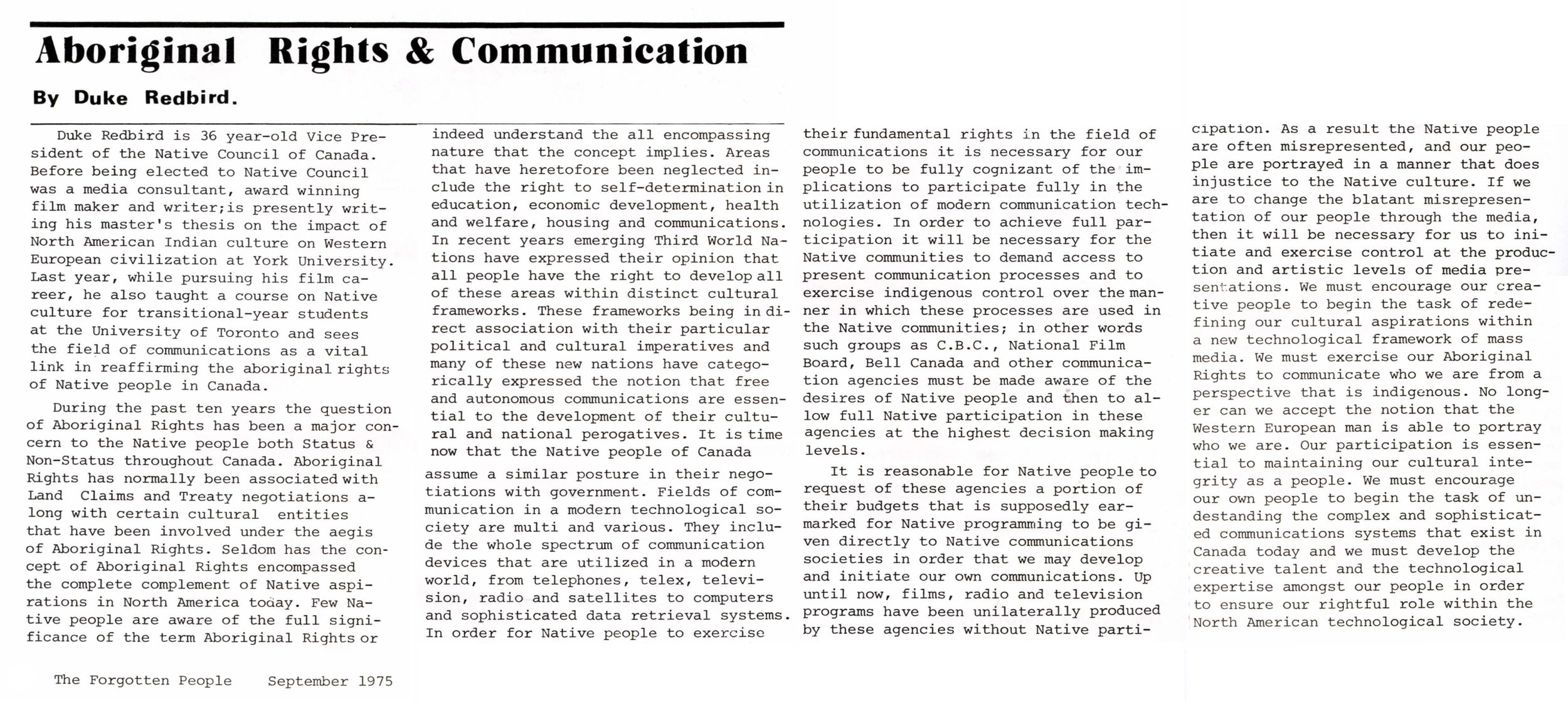During this time, Duke also worked closely with Smokey Bruyere to fight for Aboriginal Rights. Aboriginal Rights had been, until that point, associated with Land Claims and Treaty negotiations along with certain cultural entities. However, the true definition of Aboriginal Rights encompassed the complete complement of Indigenous aspirations including the right to self-determination in education, economic development, health and welfare, housing and communications. As Director of Research for Aboriginal Title at OMNSIA, and through his landmark work presented in We Are Metis, Duke was able to prove beyond a doubt that the Metis presence in Ontario played a vital, indeed a crucial role, in the development of the province and his work continues to advocate for the recognition of Indigenous peoples as a founding people of Canada in the Constitution, alongside the French and English. This idea has been consistently rejected by Prime Ministers, beginning with Chretien as read in the articles below.








